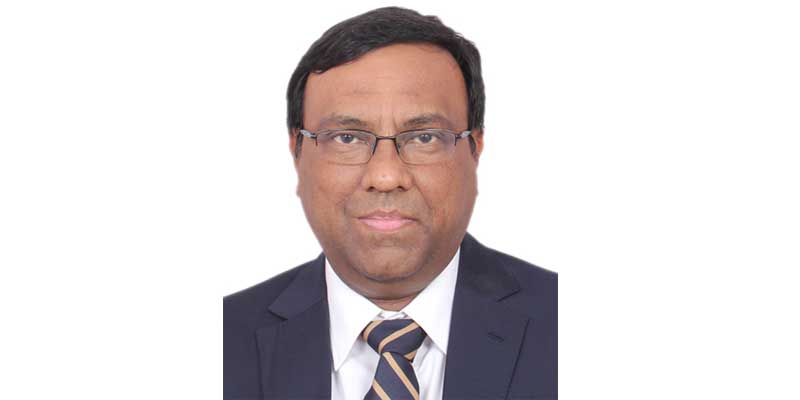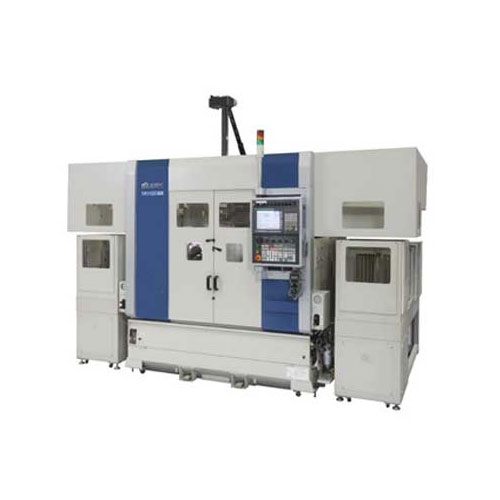Schedule a Call Back
Wipro PARI is looking to expand into new geographies
 Industry News
Industry News- Nov 02,22

For Wipro PARI, which has around 1,300 employees and a significant global presence, has witnessed significant growth in the recent years by offering automation solutions to manufacturing facilities across the world. In this exclusive interview with Rakesh Rao, Sundararaman G, Co-CEO, Wipro PARI, elaborates on changing manufacturing landscape and importance of modern production technologies to gain the competitive edge in the market place.
How has Wipro ramped up its Industrial Automation Solutions business in the last couple of years? Which key end-user industries are driving the demand?
At Wipro Infrastructure Engineering (WIN), as part of our growth strategy, we continuously analyse emerging technologies, applications, and the industry landscape. While doing this, we evaluate new investment opportunities that not only hold the promise of growth but also have a synergistic alignment with our current businesses, capability, and culture. In this context, we forayed into Industrial Automation business in 2018 and acquired PARI in 2021, which is India’s leading automation solution provider.
Today, we are the leading automated manufacturing technology provider to the emerging EV segment in automotive industry. Over the last couple of years, we have grown well across all geographies be it in USA, Europe, or India. Wipro Pari offers turnkey automation solutions in EV manufacturing processes like battery assembly, electric drive motor assembly, EV transaxle & gear box assembly, automated structural welding for specialised applications like battery tray, laser welding, conventional ICE powertrain assembly, machine tending, intralogistics & storage automation solutions for pharma, tyre, FMCG, F&B segments, automated car parking solutions, etc.
How is Wipro PARI helping the manufacturing sector to become smart and intelligent?
We offer Industry 4.0 solutions, AI/ML enabled smart manufacturing solutions which help our customers unlock hidden capacity in manufacturing lines using data gathered from the equipment and processes. We help our customers to collect data through data loggers, industrial PC or edge device without any change to their equipment or machinery. The data is analysed through software algorithms to track performance and KPIs with user friendly dashboards and actionable recommendations for improving the line productivity.
What are the key challenges facing manufacturers (i.e your customers) today? How are you helping them to overcome some of these challenges?
Key challenges faced by our customers are getting appropriate & cutting-edge automation solutions which are reliable and helping them to get the best returns on their investments. The product changes are very frequent, and customers expect the manufacturing lines to be flexible to adopt to these changes in shorter time and with less concerns. We help the customers to zero in on the right solutions adaptable to their needs and expectations, making sure that what we offer is the latest and ready to meet the near future technological changes. Innovation and at the same deployment of proven solutions is the key approach that we follow.
How has Covid pandemic changed the dynamics of manufacturing with respect to usage of technologies – i.e., hardware as well as software?
Covid pandemic has impacted the manufacturing significantly with the companies investing in automation technologies for people productivity and smart manufacturing for remote monitoring and control. The no-touch or minimum touch requirements are getting implemented in assembly lines, automated material handling options are being explored.
How is Wipro PARI incorporating modern technologies to enhance its manufacturing efficiency? How has these technologies helped your company?
Our own manufacturing facilities for manufacturing automated solutions are fully equipped with latest technology machines, we use latest hardware and software solutions to assemble, integrate and test our offerings. We are one of the early adopters of Virtual Commissioning, which creates the Digital Twin of the manufacturing process, even before the actual machinery & assembly stations are manufactured. We have a very strong software team which builds our own captive software requirements for business process management, best-in-class project management & integrated design, and engineering platform. These technologies have helped us to scale our business flawlessly, train our people quickly and effectively, and help building our customer confidence significantly.
What are key hurdles faced by Small & Medium Enterprises (SMEs) – who are the backbone of the manufacturing sector - when they adopt (or plan to adopt) automation? Are there low-cost entry routes into automation?
The key hurdle faced by SME segment in adopting automation is their ability to foresee the benefits that automation can provide to them. It is not low-cost entry that will solve their dilemma to invest in automation. But their keenness to look for appropriate automation solutions which will free them from issues of productivity, quality & skilled labour shortage that they face on day-to-day basis.
Do you cater to the automation/digitalization needs of SMEs?
We offer our automation solutions to the entire spectrum of the industry be it small or big. The automation solutions that we provide are repeatable, scalable, and sustainable. The benefits of them can be realised by SMEs when they truly internalise the need for automation and not just look at inexpensive or makeshift (jugaad) options to solve their pains through temporary solutions. Our digital offering can free the owners of SMEs to focus on business development, customer engagement as remote monitoring of his operations can be enabled and he need not present all the time at his factory to monitor the production & quality.
What are the emerging trends in the manufacturing industry?
The emerging trends in the manufacturing industry are automation concepts that include flexible layout with modern ways of material handling using automated mobile robots (AMRs), deployment of automated storage & retrieval systems (ASRS) and software concepts like Virtual Commissioning, IoT for remote monitoring, control & analysis.
What are your growth plans for Wipro PARI?
Our growth plans include facility expansion to new geographies, significantly expand our existing footprint at Pune, invest in talent increase in our design & engineering teams, strengthen our offerings on Industry 4.0 solutions, and penetrate deep in EV segment including solutions to automated battery cell manufacturing. Besides, we aim to expand our offerings significantly in non-automotive space – especially in the warehouse automation area for consumer packaged goods (CPG) industry.
Related Stories

SME Magazine Honours India’s Fastest Growing Engineering Companies at NSE
The Smart Manufacturing & Enterprises (SME) Conference & Awards 2026 - held on February 11, 2026 at National Stock Exchange (Mumbai) - highlighted resilience and technology as the cornerstones of In..
Read more
KWV Secures Rs 0.42 Billion Under Maharashtra EV Policy
Kinetic Watts & Volts will receive ?42 crore in phased incentives under Maharashtra’s EV Policy to expand robotics-led manufacturing and battery assembly for the Kinetic DX EV.
Read more
Honeywell–TCS Partner to Drive Enterprise-Wide Autonomy
Honeywell and TCS join forces to integrate OT and IT, enabling AI-driven autonomy, real-time intelligence and improved efficiency for building and industrial operators.
Read moreRelated Products

Compact Fmc - Motorum 3048tg With Fs2512
Meiban Engineering Technologies Pvt Ltd offers a wide range of Compact FMC - Motorum 3048TG with FS2512.

Digital Colony Counter
Rising Sun Enterprises supplies digital colony counter.
Robotic Welding SPM
Primo Automation Systems Pvt. Ltd. manufactures, supplies and exports robotic welding SPM.













